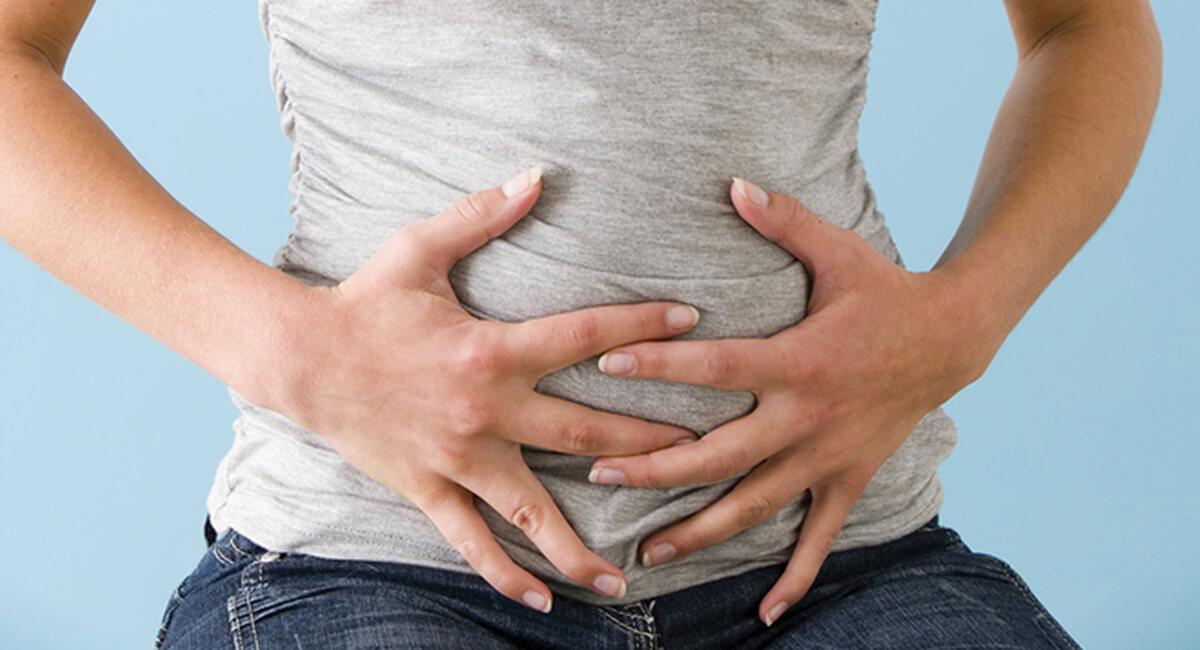
Introduction
Some of the most common ailments we treat using laser procedures include fissures, fistula, pilonidal sinus, and haemorrhoids. This procedure mainly uses a light beam of high energy to fix the problematic area, the cause of the abnormality.
The laser works by emitting laser lights via a process called optical amplification. The process results in shrinkage and fibrosis of pile tissue.
Our laser procedures are entirely safe, minimally invasive, less painful, and scar-free. They also don’t lead to complications in the future. Above all, laser procedure promises effective results.
Request an Appointment at Smiles
What are the Advantages of Laser Procedure?
Anorectal Surgeries that Require Laser Treatment
- ● Anorectal Fissures: An anal fissure is a small crack or tears found in the anal lining. Anal fissure occurs while passing hard stools leading to pain and bleeding during bowel movements.
- ● Pilonidal Sinus: A pilonidal sinus is a small hole in the skin filled with pus, leading to the formation of a sinus. It is mainly formed at the crease of the buttocks. The sinus usually contains hair debris and dirt. If not treated at the right time, it can further lead to severe infection.
- ● Piles: Piles or haemorrhoids are heavy arterial blood flow, causing dilations in the hemorrhoidal plexuses and repeated congestion. Elongated veins found at the intersection of the rectum and anus are Hemorrhoids.
- ● Anal Fistula: An anal fistula is a tiny, abscessed channel that forms from an infection in the anal gland. This infection further spreads to the skin.
Why Choose Smiles for Laser Procedure?
- Same Day Discharge: No cuts, no pain, no scars, short downtime, and same-day discharge is what we deliver in the form of laser treatment. You can now get rid of long hospital stays with an advanced laser procedure.
- Advanced Technology: When you choose us, you say yes to a pain-free treatment. Powered by state-of-the-art technology, our facility ensures that there are no side effects or post-operative discomfort. Most of the anorectal ailments heal in a week.
- Personalised Care: To ensure patients receive high-quality care, our practitioners dedicate extra attention defined by exceptional personalised care. Be it a routine follow-up or addressing an emergency, we don’t step back in offering convenient care.
- Easy Admission and Discharge Process: Our admission and discharge processes are hassle-free. We don’t waste time on unnecessary paperwork. We take pride in serving patients with utmost care and attention.
When is Laser Procedure Prescribed?
What to Expect After Laser Procedure?
Here’s what you are expected to do for a quick recovery:
- ● Don’t indulge in a heavy workout.
- ● Mild exercises are recommended.
- ● Eat a healthy diet.
- ● Practice hygiene.
- ● Be consistent with your follow-ups.
- ● Haemorrhoids patient should avoid straining while passing stool.
Are There Any Side Effects of Laser Procedure?
Request an Appointment at Smiles
FAQ's
Is Laser Procedure Beneficial for Females?
Why is Laser Procedure in Demand?
- ● Quick procedure
- ● Local anaesthesia
- ● Quick recovery- You can resume your daily routine within seven days
- ● Same-day discharge
- ● No chances of recurrence
- ● Painless
- ● Scarless
- ● Stitchless
What is Minimally Invasive Surgery?
Whom Should I Contact for Pile Laser Surgery?
At Smiles, we work with top industry surgeons who are well-versed with advanced technology to offer patients with supreme care. Our practitioners are competent in colonoscopy, endoscopic, laparoscopic, laser, sigmoidoscopy, gastroscopy, and many other ultra-modern treatments.
Is Anaesthesia Given During the Laser Procedure?
Depending on the reason for your laser procedure, you will have a follow-up with the specialist to check your daily health status and assist in better recovery.
Need Help?
For any Information about our Locations, Doctors or Treatments.
Pharmacy
Laboratory
Patients
Testimonials
View Our Reviews
On Google
View Our Reviews
On Facebook
View Our Reviews
On Practo
View Our Reviews
On JustDial

Introduction
We have all experienced Abdominal Pain at some point in our lives. In most cases, the pain can be attributed to a simple reason, and it usually disappears on its own.
However, some people experience persistent or chronic Abdominal Pain that a serious underlying medical condition could cause.
Any pain that’s felt in the abdominal region is known as Abdominal Pain. The abdomen is home to several organs, and the pain could result from one of many conditions that could be affecting these organs.
The abdomen is the region between the chest and pelvic region. The pain could be sharp, dull, throbbing, cramping, aching, or intermittent. The many organs in this region are:
- ● Stomach
- ● Large and small intestines
- ● Gallbladder
- ● Spleen
- ● Liver
- ● Pancreas
- ● Appendix
- ● Uterus
- ● Kidneys
Abdominal Pain can be traced to a malfunctioning tissue or an infection in any one of these organs.
Request an Appointment at Smiles
What Causes Abdominal Pain?
Sometimes, infections of the throat and blood can enter the digestive tract wreaking havoc on the digestive system’s normal functioning. This could result in diarrhoea or constipation.
Another common cause of Abdominal Pain is cramping related to menstruation. This type of pain is accompanied by pain in the pelvic region.
Some common causes of Abdominal Pain include:
- ● Gastroenteritis
- ● Diarrhoea
- ● Constipation
- ● Vomiting
- ● Stress and anxiety
- ● Acid reflux
Some serious diseases are also known to cause pain in the abdomen. These are:
- ● Crohn’s disease
- ● GERD
- ● IBS
- ● Lactose intolerance
If you are experiencing extreme Abdominal Pain, then you might have one of the following conditions:
- ● Kidney or gallbladder stones
- ● Appendicitis
- ● Ruptured spleen
- ● Infection of the kidney
What Are the Symptoms of Abdominal Pain?
This is because different types of pain can indicate different underlying causes. The pain can be acute, persistent, intermittent, episodic, or progressive.
You might also experience accompanying symptoms like diarrhoea, constipation, nausea, vomiting, and a burning sensation in your throat and chest.
How Is Abdominal Pain Diagnosed?
Your doctor will also need your complete medical history as well as your family history. They might ask questions regarding your lifestyle and the type of work you do.
You will be asked to undergo some tests to investigate or confirm the source of pain. These tests can include imaging tests like an MRI, CT scan, ultrasound, or laparoscopy.
You might also be recommended some blood tests to detect the presence of an infection. A urine sample might be required to determine the health of your kidneys.
How is Abdominal Pain Treated?
However, if an infection causes the pain, it will be treated with medications like antibiotics. Your doctor might also recommend pain relievers.
You should discuss the diagnosis with your doctor and determine a suitable course of treatment that is satisfactory to both you and your doctor.
What is the outcome of Treatments for Abdominal Pain?
However, the chances of recovering from Abdominal Pain increase exponentially if you receive medical attention at the earliest possible. This is why it’s crucial to visit your doctor if you are suffering from Abdominal Pain.
What Are the Risk Associated with Abdominal Pain Treatment?
- Adverse reactions to anaesthesia
- Development of blood clots
- Infection at the site of the surgery
- Injury caused due to the surgery
It would be best to discuss any fears you have regarding the surgery with your medical team beforehand.
Conclusion
Abdominal Pain is a common condition that affects a large fraction of the population at some point. A diverse range of factors can cause the pain.
Getting an accurate diagnosis for the cause of the pain is crucial to getting the right treatment. Abdominal Pain must not be ignored, especially if it is acute or persistent.
Request an Appointment at Smiles
FAQ's
Is Abdominal Pain Fatal?
Are there any Home Remedies for Abdominal Pain?
However, if the pain is acute and persistent, it is advisable to visit your doctor.
Why do I have a Hard Stomach?
The pain caused by these reasons can be quickly relieved. However, in some cases, a hard stomach can be indicative of more severe conditions like irritable bowel syndrome (IBS).
Can I Treat Gastritis with Antacids?
If any one of these conditions is responsible for gastritis, then it has to be treated for you to feel any relief. The use of antacids in such a situation will not help treat gastritis.
